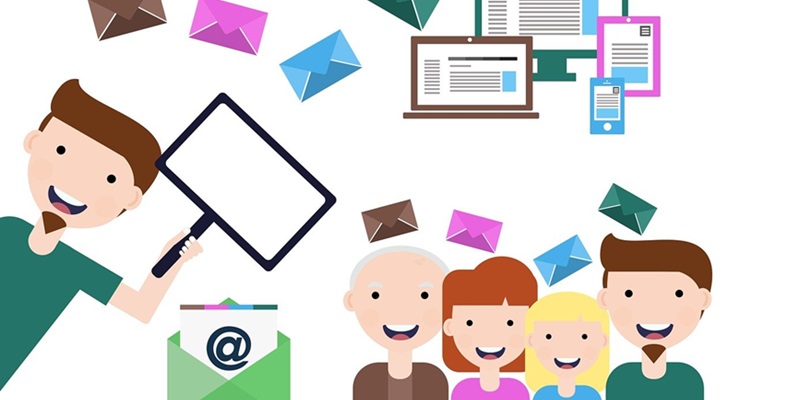In today’s digital age, where our inboxes are flooded with numerous marketing emails vying for our attention, crafting a subject line that stands out is crucial. Research shows that personalized and relevant subject lines have a higher chance of grabbing recipients’ attention and prompting them to actually read the email. In this article, we will explore the key elements that make marketing emails attention-worthy.
Captivating with Personalized Subject Lines
Personalization is no longer just a buzzword; it has become the bedrock of successful marketing strategies. A personalized subject line demonstrates that the sender has invested time in understanding the recipient. It shows that they have done their research and have a profound understanding of the recipient’s preferences, needs, and interests. This personalized approach not only grabs attention but also establishes a connection and builds trust with the recipient.
Alignment with Business Approach
In order to truly capture the attention of recipients, marketing emails must align with the way they conduct business. When the message and approach align with the recipient’s values, goals, and objectives, it immediately piques their interest. By showing that you understand their business and can provide value by addressing their specific pain points, you are more likely to engage and initiate a meaningful conversation.
Storytelling in Marketing Emails
Humans are wired to connect with stories. Incorporating storytelling techniques in marketing emails can make them more engaging and memorable. Rather than just conveying dry information about products or services, weaving a narrative that captivates the reader’s imagination creates emotional connections, fostering a lasting impression. A well-crafted story resonates with the recipient on a deeper level and increases the likelihood of them taking the desired action.
The Art of Personalization
Personalization goes beyond addressing recipients by their first name. It involves tailoring the entire email to suit their needs and preferences. This personal touch can be reflected in the content, language, and tone of the email. By showing that you have carefully studied their industry, challenges, or accomplishments, you demonstrate a genuine interest in their success. This level of personalization not only catches their attention but also establishes a foundation for future interactions and conversions.
Benefits-Focused Emails
Instead of bombarding recipients with product-centric emails, successful marketing campaigns shift the focus to the benefits customers will derive from the product or service. What problem does it solve? How does it make their lives easier? Highlighting the benefits effectively communicates the value proposition, ensuring that the email resonates with the recipient’s specific needs and desires. By centering the email around the recipient and their desired outcomes, you create a compelling reason to engage further.
Offering Actionable Insights
The most impactful marketing emails deliver actionable, thought-provoking insights. They go beyond mere sales pitches and offer practical advice or tips that recipients can implement immediately. By providing tangible value, these emails position you as a trusted advisor, reinforcing your expertise and credibility. Valuable insights not only capture attention but also keep recipients hooked, eager to explore how your organization can help them overcome challenges and achieve their goals.
Relevance as a Call to Action
In a sea of words, a whisper of relevance is the loudest call to action. By ensuring that marketing emails are highly relevant to the recipient’s current situation, pain points, or goals, you can make a significant impact. When you demonstrate a thorough understanding of their challenges and offer a solution that resonates deeply, they are more likely to take notice. A relevant email is hard to ignore and creates an urgent need to explore the opportunities you present.
Addressing Specific Needs
Personalization extends beyond the individual recipient to the company they represent. Tailoring marketing emails to address the specific needs, pain points, or goals of the recipient’s organization shows a vested interest in their success. Understanding their industry landscape, challenges, and trends enables you to provide targeted solutions that demonstrate your expertise and position your organization as a valuable partner.
The Pitfall of Generic Statements
While personalization is key, it is equally important to avoid generic statements. If an email includes statements like, “I love what your company does,” without any specific reference to their activities or accomplishments, it signals a lack of effort to understand their business. This lack of personalization can break trust and diminish the chances of engagement. It is essential to invest time and effort in thoroughly researching the recipient to avoid this pitfall.
Marketing emails that successfully grab attention and prompt engagement have several common elements. These include personalized subject lines, aligned with business approaches, storytelling that focuses on benefits, and providing actionable insights. These strategies demonstrate a profound understanding of the recipient’s needs. By recognizing their pain points and offering relevant solutions, marketers can establish trust and build lasting relationships. So, the next time you craft a marketing email, remember the art of personalization, the power of relevance, and the importance of value-focused storytelling – and watch your email engagement soar.

